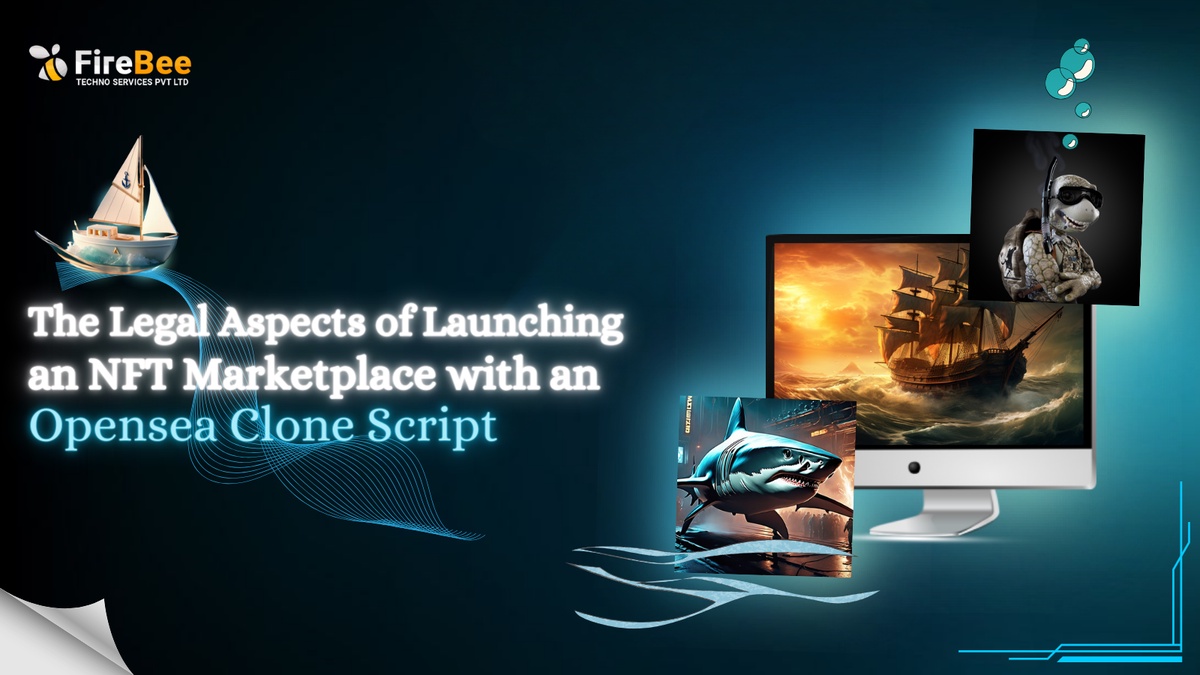Introduction
In the world of entrepreneurship, the emergence of Non-Fungible Tokens (NFTs) has been a game-changer. NFTs have revolutionized the way we perceive and trade digital assets, from art and music to virtual real estate. As a savvy entrepreneur, you might be considering the launch of your very own NFT marketplace using an OpenSea clone script. However, before you dive headfirst into this exciting venture, it's crucial to understand the legal aspects involved.
Intellectual Property Rights
One of the primary concerns when creating an NFT marketplace is the issue of intellectual property rights. NFTs often represent digital or physical assets, and the ownership or copyright of these assets may belong to someone else. Before you list an NFT for sale, ensure you have the legal rights to the content. It's vital to obtain proper licensing or permissions if necessary to prevent potential copyright infringement claims.
Terms of Service and User Agreements
Every NFT marketplace should have well-drafted terms of service and user agreements. These agreements define the rules and expectations for users, such as artists, buyers, and collectors. They also protect your platform from misuse, illegal activities, and disputes. Ensure these agreements are legally sound and clearly define user rights and responsibilities.
Understand Your Customer (KYC) and Anti-Money Laundering (AML) Regulations
KYC and AML regulations are essential for NFT marketplaces, as they help prevent illicit activities like money laundering and fraud. Implement robust identity verification procedures for users who engage in high-value transactions. This not only protects your platform but also builds trust with users.
Data Privacy and Security
As with any online platform, data privacy is paramount. Implement strong security measures to protect users' personal information and NFT data. Comply with data protection laws like GDPR if applicable, and make sure users are aware of how their data will be used and protected.
Smart Contracts and Code Auditing
If you're using smart contracts to handle NFT transactions, ensure the code is thoroughly audited for vulnerabilities. Smart contract bugs can result in substantial financial losses and legal disputes. Engage a professional code audit service to validate the security and functionality of your smart contracts.
Tax Compliance
NFT transactions may have tax implications in various jurisdictions. Consult with tax experts to understand your tax obligations, including capital gains, sales tax, and income tax. Complying with tax laws will prevent any unwanted legal issues down the line.
Conclusion
Launching an NFT marketplace with an OpenSea clone script can be a lucrative and exciting venture, but it's essential to navigate the legal landscape carefully. By addressing intellectual property rights, having clear terms of service, adhering to securities laws, implementing KYC and AML procedures, safeguarding user data, auditing your smart contracts, and ensuring tax compliance, you can build a legally sound and successful NFT platform. Consult with legal professionals who specialize in cryptocurrency and blockchain to help you navigate this complex terrain. Firebee Techno Services is a prominent Opensea Clone Script Provider. We provide top- notch Opensea Clone Script for users.


No comments yet